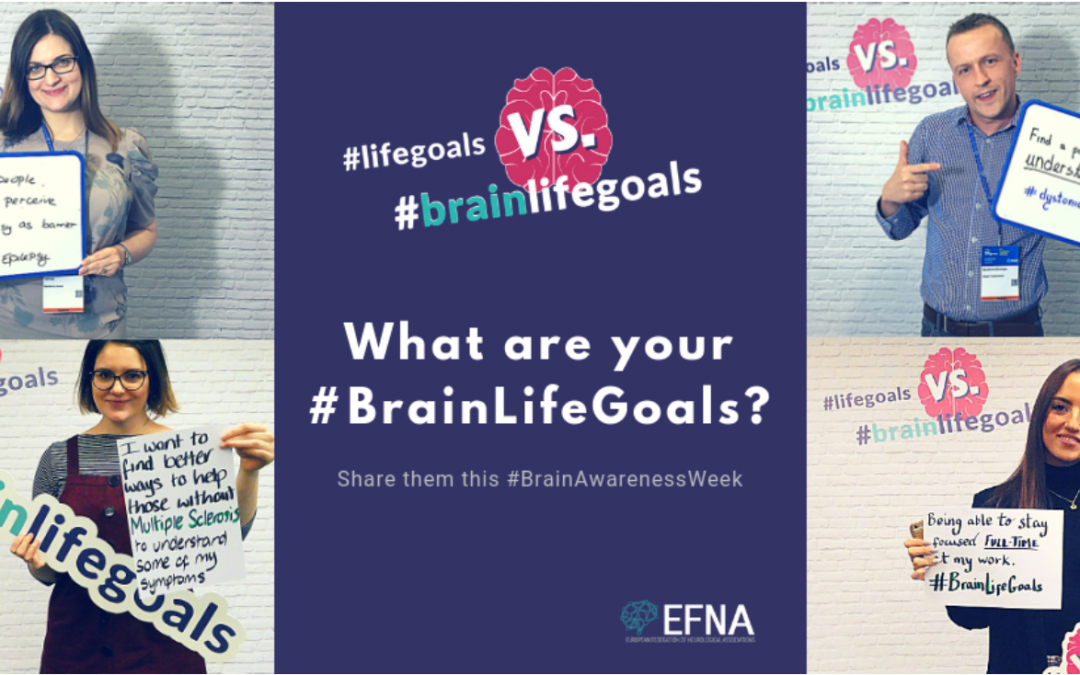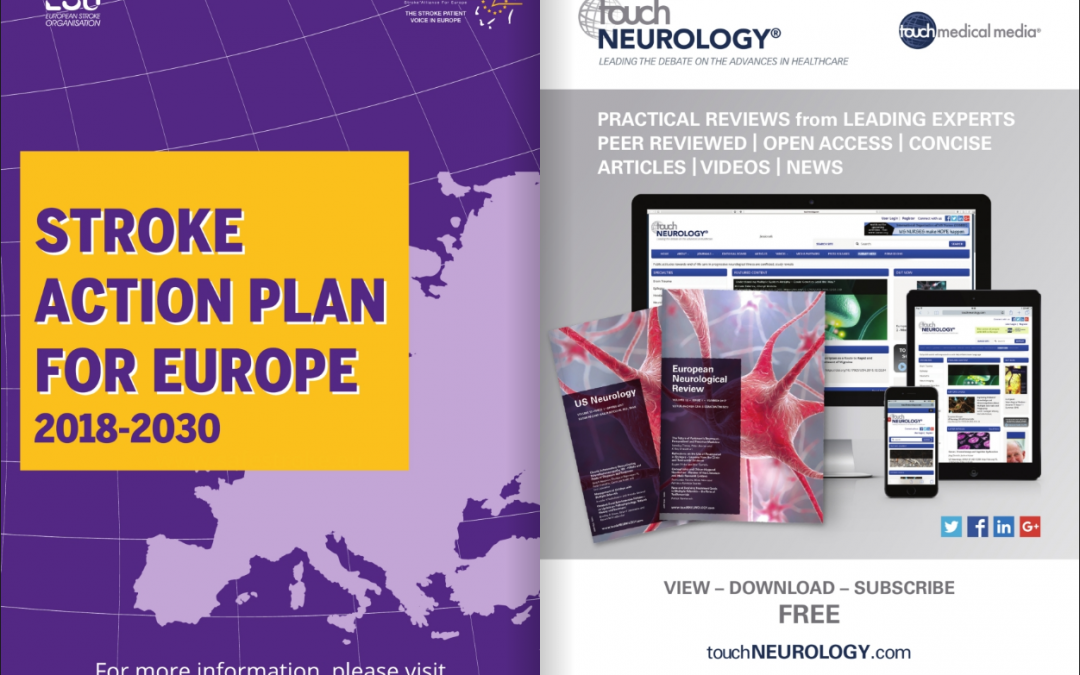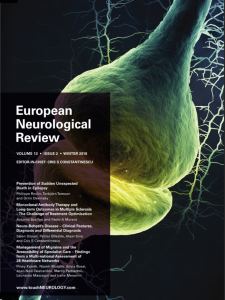
Mar 11, 2019
Sharing #LifeGoals has become a popular trend on social media. A campaign from the European Federation of Neurological Associations [EFNA] and supported by many organisations across Europe will put a new spin on the trend by instead seeing patient advocates and supporters share their #BrainLifeGoals.
The #BrainLifeGoals campaign will raise awareness of the impact of neurological diseases by exploring the dreams and aspirations of those living with a brain disorder.
You can find out more about the campaign at www.efna.net/brainlifegoals and by following the #BrainLifeGoals hashtag on social media.

Feb 9, 2019
This article first appeared on ARNI Stroke Charity (UK) website | Author: Tom Balchin
Are you interested in learning about your sleep after stroke?
Researchers at the University of Oxford are currently investigating how sleep is affected by stroke.
Heidi Johansen-Berg is Professor of Cognitive Neuroscience and Director of The Wellcome Centre for Integrative Neuroimaging at the University of Oxford. There, she leads the Plasticity Group whose research focuses on how the brain changes with learning, experience, and damage.
As well as shedding light on how the healthy brain responds to change, The Plasticity Group’s work also has implications for understanding and treating disease. For example, they are currently studying how sleep can affect recovery after stroke.
Would you be interested in learning more about your sleep following stroke?
If so, The Plasticity Group are currently running a study in which you might be interested in participating – or you may know someone who is.
The aim for this study is to investigate how sleep is affected by stroke which could help to develop better sleep improvement programmes specifically for individuals after stroke.
We know that sleep plays an important role in learning. Studies have shown that if you take two groups of people and teach them the same skill, such as juggling, then allow one group to sleep for a few hours and keep the other group awake, the sleep group will perform significantly better when retested as they have been able to consolidate the memories of learning the skill through sleep.
Learning, or re-learning, of motor skills is a key component of motor rehabilitation after stroke. If sleep is impaired following stroke then consolidation of motor skills gained through physical rehabilitation may be diminished. Therefore, finding out about how sleep is affected by stroke could help us to develop better rehab outcomes following stroke.
The current study involves coming to a research centre in Oxford for one session to complete a couple of motor assessments with the upper limbs and to answer a couple of questionnaires about your sleep and mood. Then researchers will set you up with a pair of sleep monitoring wrist watches for you to wear for a week with a simple sleep diary asking what times you go to bed and get up each day.
Read the full article here.

Jan 31, 2019
This article first appeared on ARNI Stroke Charity (UK) website | Author: Tom Balchin
Tiredness is something we all experience in our everyday lives. But fatigue is where we experience tiredness which is unrelated to physical or mental exertion, and is not alleviated by rest. Up to 70% of survivors experience fatigue, characterised by overwhelming physical and/or mental tiredness or exhaustion. For many the symptoms dissipate and lessen over time. Others continue to experience these symptoms at a high level many years after their stroke. This is called chronic fatigue.
It is a condition which can greatly impact upon the quality of an individual’s life, making everyday tasks feel overwhelming and unachievable, or just plain exhausting.
Previously, it was thought that patients who experience depression post-stroke were fatigued as a result of their mental health, whereas it is now highly possible that the inverse relationship may, in fact, be true. Fatigue may often be the cause, or a significant contributing factor, of depression.
There is currently no clinical method for diagnosing fatigue, and no treatment is available to alleviate the condition.
Research into fatigue is at its very early stages. Work to contribute towards a treatment has now been spearheaded by Dr Anna Kuppuswamy, the lead researcher on the project.
Her study aims to further general understanding of how fatigue works in the brain, and whether or not it can be alleviated. The goal for the future is to be able to diagnose and treat fatigue effectively, so that no-one need experience its debilitating effects.
So, how can you help?
STROKE SURVIVORS EXPERIENCING HIGH LEVELS OF FATIGUE –
Please come to help Dr Kuppuswamy’s Team test a new intervention for fatigue!
You can read the full article here.
For more information about the UK ARNI Institute please visit their website.

Jan 4, 2019
First published on ScienceDaily.com
In a medical records analysis of information gathered on more than 6,000 people, Johns Hopkins Medicine researchers conclude that simply asking older adult patients about their weight history at ages 20 and 40 could provide real value to clinicians in their efforts to predict patients’ future risk of heart failure, heart attacks or strokes.
In a report published Nov. 14 in the Journal of the American Heart Association, the investigators say the younger-weight question is potentially a cost-efficient, high-value “ask” likely to help physicians decide how to advise and treat their older patients, particularly now that many people change primary care physicians throughout their lives, and lifelong health records may not transfer. Asking this simple question about prior lifetime weights provided prognostic information about a person’s heart failure risk that was incremental to their measured weights at older ages and other measured traditional heart disease risk factors.
“We’ve known that the longer a person is obese, the more it becomes problematic by increasing their heart failure risk,” says Erin Michos, M.D., M.H.S., associate professor of medicine at the Johns Hopkins University School of Medicine. “That is why measuring a person’s weight at older ages may not tell the whole story about their risk. There’s now more evidence that newly obese people are in overall less danger. Our findings emphasize the importance of lifelong maintenance of a healthy weight, as greater cumulative weight from young adulthood is more risky to heart health.”
“We already routinely measure weights during a patient’s clinic visit to make health recommendations, but we think adding this low-tech question about their prior weight histories can further help direct clinical care,” she adds. “While we acknowledge that self-reported weight history is imperfect, at the very least, asking the question sparks patient reflection and self-motivation to get back to healthier weights from their younger ages.”
Heart attacks, strokes and other cardiovascular diseases remain the No. 1 killers of Americans. Heart failure, also known as congestive heart failure, is a condition marked by a gradual weakening and stiffening of the heart muscle, diminishing its ability to pump blood. Physicians routinely attempt to assess risks for heart disease and heart failure as patients age with measures of blood pressure, cholesterol, exercise levels, family history, diet and weight, Michos noted. Although a single weight measurement in an older adult is helpful, she says, weight history is even more informative, and the new study was in part designed to identify a practical way of getting it that would be considered informative enough to add to clinical care.
For the study, the researchers used data already gathered on 6,437 participants in the Multi-Ethnic Study of Atherosclerosis (MESA) recruited between 2000 and 2002 who were age 45 to 84 at time of enrollment into the study. Participants were followed an average of 13 years, and lived in six U.S. communities: Baltimore, Maryland; Chicago, Illinois; Forsyth County, North Carolina; New York City, New York; Los Angeles County, California; and St. Paul, Minnesota. On average, they were 62 years old at the study’s start. Almost 53 percent of the participants were women. About 39 percent of participants were white, more than 26 percent were African-American, 22 percent were Hispanic and a little more than 12 percent were Chinese-American.
Each participant filled out a survey that reported their weight history at age 20 and 40. Their weights were further tracked during the study period using measurements from a standardized scale over five different in-person visits. All weights were converted to body mass indexes (BMI) by dividing the weight by the square of height. A BMI less than 25 kilograms per meter squared was considered normal, while a BMI between 25 and 30 was considered overweight, and 30 and above was considered obese.
By the end of all participants’ last visit, 290 people had experienced heart failure, and 828 experienced cardiovascular disease events such as heart attacks, stroke and or death as determined by participant and family interviews and patient medical records.
As expected, Michos says, the standard measured weights taken at clinic visits during the 13-year study period were associated with later heart failure risk, with a 34 percent increased likelihood of heart failure for every 5 kilograms per meters squared increase in BMI, after accounting for other established heart disease risk factors such as age, smoking, physical activity, blood pressure and diabetes. But then her team found that even after taking into account these current measured weights at older ages, that having a self-reported history of obesity at age 20 (144 participants) was associated with a more than threefold risk of heart failure, and having a history of being obese at age 40 (716 participants) doubled the risk compared with people who had a BMI in the normal range at those ages.
“Our study confirms that maintaining a normal weight over the lifespan is the most ideal, and that when and for how long a person becomes obese are highly informative in assessing heart disease risk in older adults,” says Michos.
Michos cautioned that the new study was designed to look at associations between self-reported lifetime weights and heart disease risk over time, and not determine cause and effect or attempt to determine the accuracy of patients’ recall of their weight at young ages. Patient self-reporting can result in bias or imperfect memory, but the researchers believe most older adults have reasonably accurate recall of their younger adult weight. Their study findings suggest that even with these known limitations of weight recall, that simply asking about weight history was helpful in risk assessment. Right now, clinicians just don’t routinely ask about a person’s weights at key life points such as young- and mid-adulthood, Michos says, but it is so easy to do.
Michos says that we need to investigate how we can incorporate this ask (about lifetime weight recall) into electronic health records and into clinical practice.
About 1 in 3 deaths in the U.S. are due to heart disease, according to the American Heart Association. About 92 million American adults are living with some form of cardiovascular disease. About 5.7 million people in the U.S. live with heart failure, and more than half a million are diagnosed each year. More than half of people with heart failure will die within five years of diagnosis, according to the Centers for Disease Control and Prevention.
Story Source:
Johns Hopkins Medicine. “Your weight history may predict your heart failure risk: Low-tech reporting on earlier weights may guide clinical care.” ScienceDaily. ScienceDaily, 12 December 2018. <www.sciencedaily.com/releases/2018/12/181212093327.htm>.

Dec 28, 2018
Another exciting issue of European Neurological Review is now released, highlighting new advances in the field of Neurology, as well as featuring SAFE’s information about the Stroke Action Plan for Europe.
 We find one of the case reports from this issue particularly interesting, covering a rare syndrome that can occur in persons with an ischaemic stroke.
We find one of the case reports from this issue particularly interesting, covering a rare syndrome that can occur in persons with an ischaemic stroke.
Charles Bonnet syndrome (CBS) is characterised by the presence of visual hallucinations (VH) and visual sensory deprivation in individuals with preserved cognitive status and without a history of psychiatric illness. CBS is a rare, underdiagnosed and under-recognised syndrome, which was first described in 1769 by Charles Bonnet, who observed this phenomenon in his grandfather.
The prevalence of CBS is not consistent between authors. Some studies have stated that 0.47% of the general population suffer from CBS – this number can increase to around 15–30% when referring to patients with visual impairment. The disparity in CBS prevalence can be explained by the absence of clear diagnostic criteria, the necessity of different specialties to recognise or exclude other disorders and the incapability of patients to express the symptoms.2,3 CBS usually occurs in elderly people with compromised visual function and can be a rare manifestation of an injured visual pathway. Secondary lesions to multiple sclerosis, ischaemic stroke, temporal arteritis and meningiomas can explain the syndrome. This case report presents a variant of CBS as consequence of an ischaemic stroke in left occipitotemporal regions. In our view, the particularities and variations of CBS should be widespread, as it can be the only manifestation of an ischaemic stroke that requires appropriate and immediate management.
You can read the full case report here and you can find more articles from the latest issue here.

Dec 14, 2018
First published on ScienceDaily.com
Aggressive treatment of hypertension in stroke patients could do more harm than good in the long term, according to a new study from researchers at the University of Georgia.
Sixty percent of stroke patients admitted to U.S. emergency rooms have elevated blood pressure, and many studies say that having high blood pressure at the time of stroke can lead to higher rates of death and major disability.
But lowering blood pressure too much with medications may actually be working against the body’s protective response to maintain blood flow into the affected brain tissues.
“This presents a clinical dilemma,” said study author Changwei Li, an assistant professor of epidemiology and biostatistics at UGA’s College of Public Health.
It may be better to keep blood pressure a little higher than normal, closer to 140/90 mmHg rather than a “good” blood pressure of 120/80 mmHg, but that leaves the question of best practices a little open-ended.
“Currently, hypertension treatment for acute stroke patients is based on physicians’ clinical experience and judgement,” said Li. “There is no guideline on how low the blood pressure should be maintained.”
The key is to find the right balance between maintaining blood flow to the brain and reducing negative short- and long-term effects.
To help identify this optimal blood pressure, Li and his co-authors looked at the relationship between blood pressure during stroke and both short- and long-term health outcomes for over 4,000 Chinese stroke patients participating in the China Antihypertensive Trial in Acute Ischemic Stroke study. One group of stroke patients received extensive treatment for high blood pressure while a control group received no treatment at the time of their stroke.
Li and his collaborators tracked blood pressure changes over time in both the treatment and control groups during the first week of hospital admission and compared patient health at one week, three months, one year and two years following the stroke across patients of different blood pressure trajectories.
To access the full article, please click here.
Story Source:University of Georgia. “Optimal blood pressure treatment for stroke patients.” ScienceDaily. ScienceDaily, 10 December 2018. <www.sciencedaily.com/releases/2018/12/181210142059.htm>.






 We find one of the case reports from this issue particularly interesting, covering a rare syndrome that can occur in persons with an ischaemic stroke.
We find one of the case reports from this issue particularly interesting, covering a rare syndrome that can occur in persons with an ischaemic stroke.



